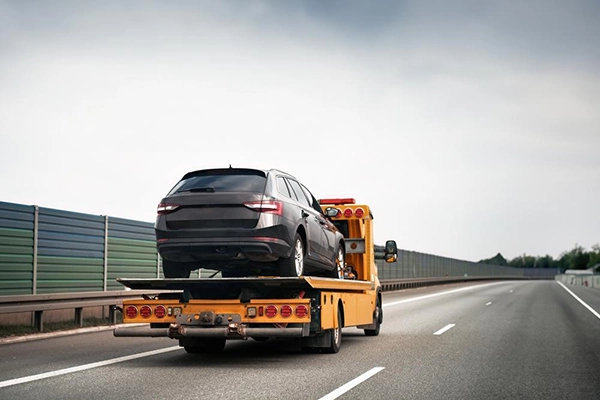
Buying a car remotely, whether from an online auction, a specialist dealer, or a private seller, has become an increasingly popular option. It allows buyers to access a wider range of vehicles beyond their local area. However, purchasing a car without seeing it in person requires careful planning and attention to detail. By taking the right steps, you can ensure a safe, smooth, and successful remote car purchase.
The first step to a successful remote car purchase is thoroughly researching both the vehicle and the seller. Understanding the seller’s reputation is crucial, as this determines whether the transaction is likely to go smoothly. For dealers and auction platforms, check customer reviews and ratings to gauge reliability. Private sellers may not have formal reviews, but you can look for online mentions or complaints that might indicate red flags.
Additionally, it is essential to investigate the car’s history. Request the Vehicle Identification Number (VIN) from the seller and use services like CARFAX or AutoCheck to obtain a detailed history report. These reports provide valuable insights into previous ownership, accidents, title issues, and service records. Be wary of any gaps or inconsistencies in the car’s history, as they could signal hidden problems.
Since you won’t have the chance to see the car in person, you’ll need to rely on detailed documentation and professional assessments. Start by asking the seller for high-quality photos of the car from multiple angles, including the interior, exterior, engine bay, and undercarriage. Video walkthroughs can provide an even better sense of the car’s condition, showing how it looks in motion and capturing any flaws not visible in photos.
For added security, consider hiring a third-party inspection service located near the seller. These professionals can assess the vehicle’s mechanical and cosmetic condition, providing you with an unbiased report. A professional inspection is particularly valuable when purchasing older or high-value vehicles, as it helps you avoid surprises that might not be disclosed by the seller.
To avoid overpaying for your remote car purchase, research the fair market value of the vehicle. Resources like Kelley Blue Book (KBB) and Edmunds allow you to compare prices based on the car’s make, model, year, mileage, and condition. This knowledge provides a solid foundation for negotiating a fair deal.
It’s also important to account for additional expenses that come with remote purchases. Beyond the car’s purchase price, you’ll need to consider shipping fees, taxes, registration costs, and any service fees charged by the platform or dealer. By calculating these costs in advance, you can budget accurately and avoid unpleasant financial surprises.
Arranging financing before finalizing the purchase is a smart move that ensures you are prepared to act quickly when the right opportunity arises. Work with a trusted lender to get pre-approved for a loan, as this gives you a clear idea of your budget and strengthens your negotiating position.
When it comes to payments, be cautious. Avoid wiring money directly to the seller unless you have proper documentation and confidence in their credibility. Opt for secure payment methods that offer buyer protection, such as escrow services or verified platforms, to minimize financial risks.
Proper documentation is critical when buying a car remotely, as it protects you from potential legal or logistical issues. Ensure that the seller has the legal authority to sell the car and that the title can be transferred to your name without any complications. Be particularly vigilant for any outstanding liens on the vehicle, as these could delay or void the transfer process.
Additionally, research your state’s regulations for vehicle inspections, emissions standards, and registration requirements. Some states have strict rules that may affect your ability to register the car once it arrives. Verifying these details before completing the purchase will save you time and hassle later.

Shipping the car to your location is a key part of the remote buying process. Choosing a reliable transport company is essential to ensure the vehicle arrives in the promised condition. Look for companies with positive reviews and comprehensive insurance coverage. Depending on the car’s value and condition, decide whether an open or enclosed trailer is the best option, and for valuable vehicles consider a specialist luxury car transport business which offers superior equipment and insurance coverage.
Clarify all shipping details with the transport company, including pickup and delivery timelines, the inspection process upon delivery, and their insurance policy for potential damages during transit. Having a clear agreement helps avoid misunderstandings and ensures a smooth handoff.
Maintaining clear and secure communication with the seller is vital at every stage of the transaction. Document all discussions, agreements, and financial transactions in writing, either via email or through a secure platform. This creates a record of the process that can be used in case of disputes.
Be wary of sellers who refuse inspections, demand immediate payment, or insist on communicating exclusively through unofficial channels. These are common signs of scams, and it’s always better to walk away from a deal that feels suspicious rather than risk losing your money.
Having post-purchase protections can provide peace of mind. Certified Pre-Owned (CPO) vehicles often come with warranties that cover repairs and maintenance for a specified period. If you’re buying from a dealer, check whether they offer a return policy or satisfaction guarantee.
Upon receiving the car, inspect it immediately to ensure it matches the condition and description provided by the seller. Document any discrepancies with photos and communicate them to the seller promptly. Having a clear understanding of your rights and options helps you address any issues effectively.
Purchasing a car remotely can be a safe alternative to shopping locally, and a rewarding experience when done correctly. With proper planning and diligence, you’ll be well-prepared to find the perfect car, no matter where it’s located.
